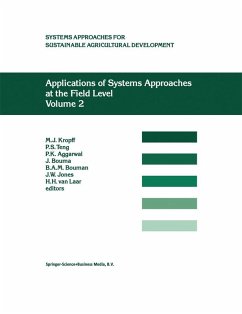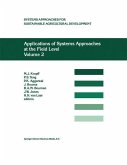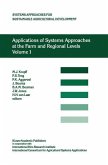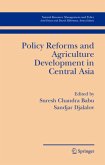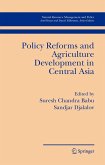Systems approaches for agricultural development are needed to determine rational strategies for the role of agriculture in national development. Mathematical models and computer simulation provide objective tools for applying science to determine and evaluate options for resource management at field, farm and regional scales. However, these tools would not be fully utilizable without incorporating social and economic dimensions into their application.
The second international symposium, Systems Approaches for Agricultural Development (SAAD), held in Los Baños, 6-8 December 1995, fostered this link between the biophysical sciences and the social sciences in the selection of keynote papers and oral presentations, a selection of which are included in these books. The contents further reflect how systems approaches have definitely moved beyond the research mode into the application mode. The large number and high quality of interdisciplinary research projects reported from different parts of the globe, to determine land use options that will meet multiple goals and yet sustain natural resource bases, is a key indicator of this `coming of age'. At the farm level, where trade-off decisions between processes and products (commodities) feature strongly, much progress is also evident in the development of systems-based tools for decision making. At the field level optimization of resource use and minimizing environmental effects has become of major concern for which systems approaches are indispensable.
The books, of which Volume I deals with regional and farm studies level and Volume II with field level studies, will be of particular interest to all agricultural scientists and planners, as well as students interested in multidisciplinary and holistic approaches to agricultural development.
The second international symposium, Systems Approaches for Agricultural Development (SAAD), held in Los Baños, 6-8 December 1995, fostered this link between the biophysical sciences and the social sciences in the selection of keynote papers and oral presentations, a selection of which are included in these books. The contents further reflect how systems approaches have definitely moved beyond the research mode into the application mode. The large number and high quality of interdisciplinary research projects reported from different parts of the globe, to determine land use options that will meet multiple goals and yet sustain natural resource bases, is a key indicator of this `coming of age'. At the farm level, where trade-off decisions between processes and products (commodities) feature strongly, much progress is also evident in the development of systems-based tools for decision making. At the field level optimization of resource use and minimizing environmental effects has become of major concern for which systems approaches are indispensable.
The books, of which Volume I deals with regional and farm studies level and Volume II with field level studies, will be of particular interest to all agricultural scientists and planners, as well as students interested in multidisciplinary and holistic approaches to agricultural development.

